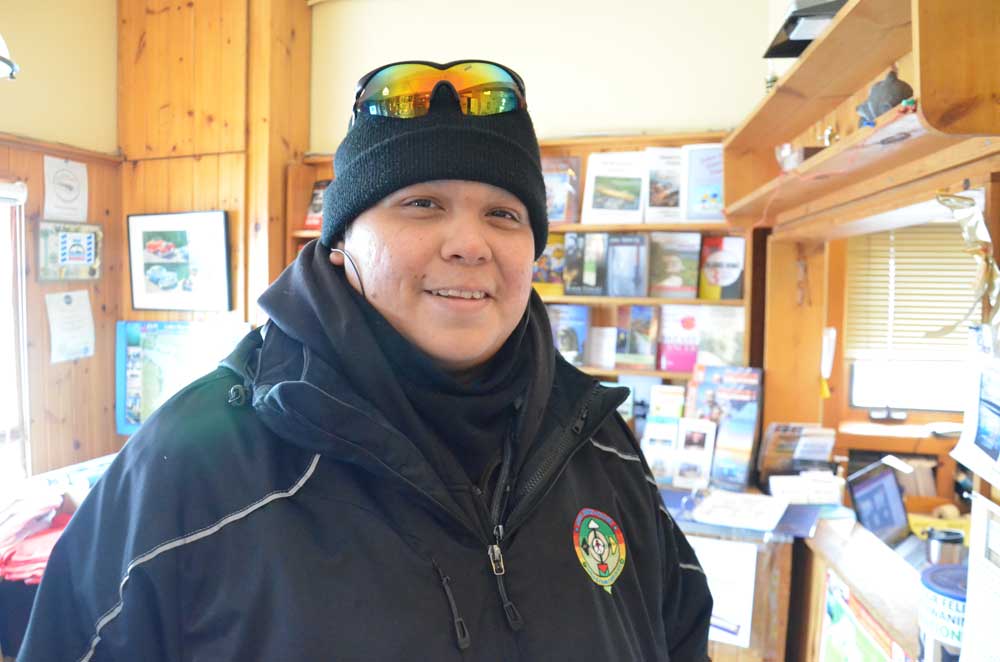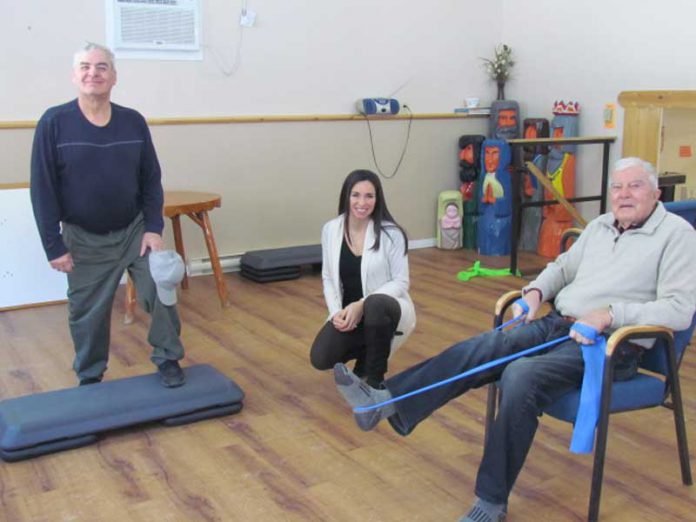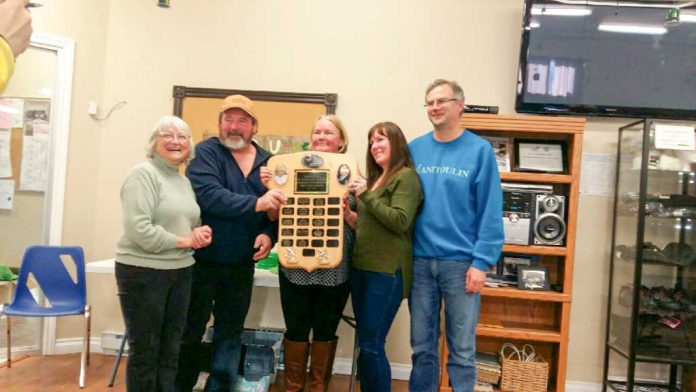SHEGUIANDAH—Plans for the legalization of marijuana are barrelling down the legislative highway and, despite a few Senate bumps in the road, seem destined to become a reality sometime late this summer (slightly delayed from the federal government’s originally planned July 1 rollout). Judging by media reports, a disinterested observer could be forgiven for thinking that everyone was in lockstep on the concept—but a Sheguiandah First Nation resident is definitely not on board with the idea and is putting out a call for others of like mind to help him get the government to put on the brakes.
“I am starting a petition for the prevention of marijuana legalization in Ontario,” said Cody A. Towers. “I would like to keep marijuana as a strict medically prescribed substance only.”
Mr. Towers dropped by The Expositor offices to outline the reasons why he is opposed to recreational marijuana and the legalization of the drug—and some of those reasons are very personal.
“First of all, by enabling the use of marijuana (for recreational purposes) we are showing the children, the youth and future leaders of our reserves, small towns, province and country that getting high is okay,” he said. “It’s not—it’s a poison.”
Mr. Towers said that he believes that most people who start using marijuana never stop “or they will move on to worse, harsher and more addictive substances in search of a better high or buzz, or from peer pressure at a party.” His viewpoint may be anecdotal, but it is also first person.
“I myself am a recovering addict,” he said. “I started using in Grade 9 and I continued using it for the next 10 to 12 years, perhaps even longer. The point I am trying to make is that marijuana made it extremely difficult to focus, learn and to memorize lessons from that day, resulting in me learning very little.”
Mr. Towers points to his marijuana usage as the main culprit in starting him down the road to addiction and derailing his school career. “It took away my drive, my ambition, which eventually led to my expulsion due to low marks and lack of credits.”
The impact of his drug use wasn’t just limited to his academics either. “It also affected my health in a negative way,” he said. “It caused laziness, overeating and depression from the realization that this drug had control over me.” A sense of helplessness and lack of control over his life added impetus to his downward spiral. “It drove me to smoke more from having the mindset ‘I give up, might as well keep smoking; it’s too late to stop’.”
Eventually, that spiral took him into heavier and more addictive drugs. For himself, at least, he feels marijuana was, in fact, a gateway drug.
Without the wherewithal to supply his growing consumption and lacking the drive or education to attain a good paying job, he turned to crime. “It turned me into a thief because I couldn’t afford it,” he said. “Do we really want that for the potential leaders of tomorrow?” he asked, citing the challenges that marijuana consumption poses for learning and education. If youth are not able to learn to their full potential, he suggests, “this will raise the possibility that they will give up in school from not being able to understand the work” and cause them “to go down the path of becoming a local burnout or worse—turning into drug dealers themselves.”
The legalization of marijuana will lead to it becoming even more common, and with the prohibition on smoking outdoors, “this poison will soon be outside our homes, local restaurants, bars, schools, hospitals, places of business, recreational centres, health centres and band offices.”
Mr. Towers suggests that this will lead to “important leaders of our communities making decisions for our communities with clouded judgement and not having a clear, cool head on their shoulders.”
Although marijuana may be pretty common and available now on the black market, Mr. Towers said that at least with it being illegal, children aren’t being given the message that doing drugs is “okay. We need to show our youth that they don’t need drugs to have fun, to be cool, to fit in or enjoy life,” he said, “and that using drugs does not solve our problems. It only caused more problems for the future, our loved ones and ourselves.”
The Ontario government has announced that it intends to sell marijuana in free-standing dedicated retails stores separate, but overseen by, the LCBO. The government has chosen a name for the new chain of pot stores, the Ontario Cannabis Store, likely soon to be shortened like its parent to OCS.
Newly minted Progressive Conservative leader Doug Ford has indicated a Tory government would look to expand sales to private entrepreneurs, a move Ontario Premier Kathleen Wynne has characterized as “reckless.”
The decision to legalize marijuana and regulate retails sales of the drug was made by the federal government, which originally planned legalization to take place on July 1 of this year. But delays in the Senate, which says it wants to review changes to impaired driving legislation before debating the legalization bill will likely see the pot sales bill delayed until later in August.
With the combined weight of all three major parties set against him, Mr. Towers said that he recognizes the challenge that turning the legalization of marijuana around will present, but he said that he feels it is something that has to be done for the sake of future generations.
“I can’t do this on my own,” he said. “I can only start the ripple, but together we can change the tide.” Mr. Towers said that he hopes that like minded people in the community will contact him to work together to start the petition asking the government to step back from its legalization plans. He can be contacted at
c-a-towers-1990@outlook.com.





